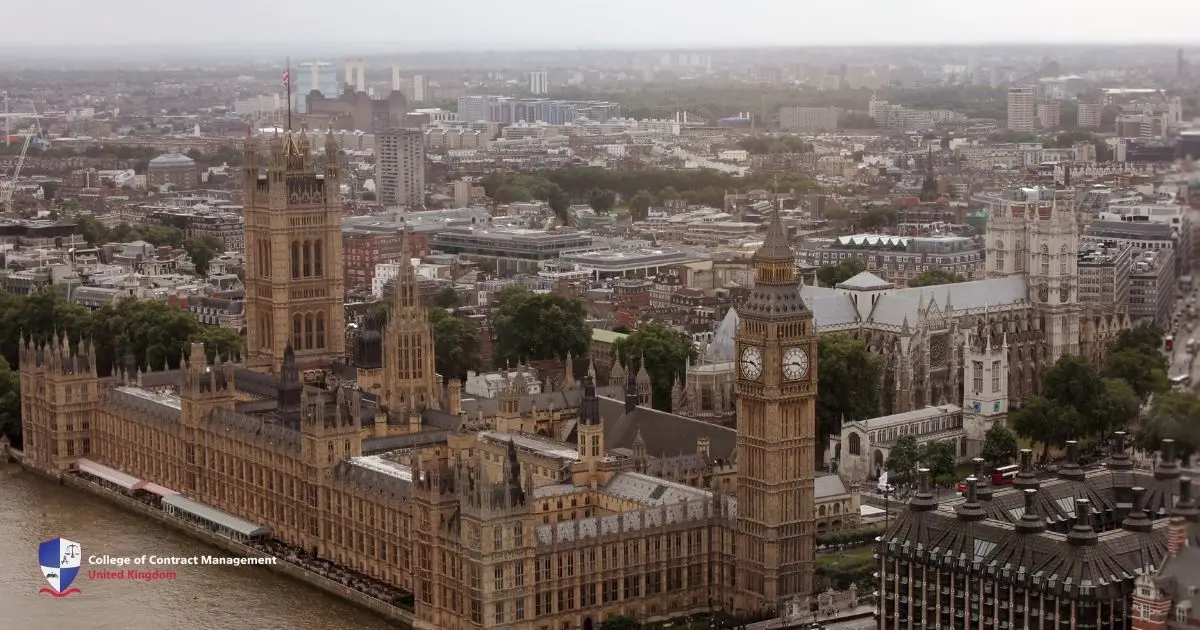The UK is having a sharp rise in living costs. In April 2025, the annual inflation rate increases to 3.5%. This number is the highest since January 2024. However, this came from higher house costs like utilities and electric bills. To illustrate, housing and household services rose by 7.0%, then water and sewerage charges jumped by 26.1%. Energy prices also increased by 6.7%, while food and non-alcoholic drinks increased by 3.4%. Many lower-income families are under financial pressure. To help with those issues, the UK government is giving the Cost of Living Payment.
The Cost of Living Payment has helped many people with financial pressures. A study found that over 80% of recipients said it helped them pay energy and utility bills. More than 60% said it helped them buy food and groceries. This shows that it is an important support for vulnerable families. In this article, we'll explore the scheme of this payment and additional support. Let's get into the writing!
What is a cost of living payment?
A Cost of Living Payment is money from the UK government for rising living costs like energy bills and food. It’s only for people who are fit for Universal Credit or Pension Credit. This means if people are on a low income, out of work, or cannot work, they can get it. When they get the benefits, people will receive the payment automatically, so they don't need to apply. These payments are tax-free and won't affect the existing benefits.
The purpose of the support is to help people with low incomes or in vulnerable situations. It helps people to handle rising living costs, especially during high inflation or economic stress. By doing so, the government can reduce the impact of economic challenges.
Cost of living support schemes (2022–2024)
Between 2022 and 2024, the UK government launched several cost of living payment schemes. The purpose of those programmes is to help households who face financial challenges from rising inflation and energy costs. Aside from that, those initiatives provide financial relief to those who were most affected during that time. In other words, the government gave this support to help people fulfil their needs.
The support included direct payments to vulnerable people. For example, Means-Tested Benefit Payments support low-income households. People with disabilities also received extra help through the Disability Cost of Living Payments. On the other hand, pensioners got support to help them with rising costs. By doing this, the government guarantees that no one will have difficulty living. Here are the details:
Means-Tested Benefit Payments
Means-tested benefit payments in the UK help people with low incomes. This cost of living payment supports those who struggle to pay for basic needs. To get this payment, the government checks the income and savings to see if they qualify. However, only people who have Universal Credit and Pension Credit will get this support.
Disability Cost of Living Payments
The UK government gives a one-time £150 payment to help disabled people with the rising cost of living. This is for those who get support, like Personal Independence Payment (PIP), Disability Living Allowance (DLA), or Attendance Allowance. In short, this money helps disabled people during the cost of living crisis.
Pensioner Cost of Living Payments
The Pensioner Cost of Living Payment is an extra payment for people over State Pension age. The government gives it automatically to those who qualify for the Winter Fuel Payment. In general, the Winter Fuel Payment is a payment that helps elderly people with their heating bills during the winter season. In other words, this support helps older people who can't afford their needs during the winter months.
Changes and developments in the cost of living payment in 2025
In 2025, the UK made key changes to the cost of living payment. First, the government announces a new £200 payment to help low-income families. In addition to that, the Prime Minister plans to reverse the 2024 rule that limited Winter Fuel Payments. As a result, more pensioners could receive financial support. Here is why:
- Adjustments to Winter Fuel Payment Eligibility: In 2024, the UK cut Winter Fuel Payments for many pensioners. As a result, only those on certain benefits could get them. However, this change affected about 10 million people. In 2025, Prime Minister Keir Starmer said he may reverse the rule. The plan could be part of the autumn Budget, but more details will come later.
- Introduction of £200 Cost of Living Payment: In 2025, the UK introduced a new £200 payment to help low-income families. This payment is part of the Household Support Fund, which runs until March 2026 with £742 million available. Moreover, local councils decide who can get the money and how to apply. The help is in vouchers or direct payments for bills and food.
Additional support measures for the cost of living
As mentioned above, the UK government added additional help for the Cost of Living Payment. For instance, local councils give money or vouchers from the Household Support Fund to families in need. The government also expanded the Winter Fuel Payment to help more pensioners pay heating bills during winter. These steps support people who are facing higher living costs.
- The Household Support Fund (HSF): The Household Support Fund helps UK families pay for basics like food and bills. It has been extended to March 2026 with £742 million. Moreover, local councils give vouchers or payments based on location and needs.
- Energy Price Cap Reduction: Starting in July 2025, Ofgem will cut the energy price cap by 7%. This will lower the average yearly bill from £1,849 to £1,720. However, many families still struggle with high costs. Therefore, people should consider fixed-rate deals and seek the Cost of Living Payment.
- Local Council Initiatives: Local councils across the UK offer help for the cost-of-living crisis. This includes supermarket vouchers, emergency payments, and crisis funds up to £500 each year. Rules and how to apply vary, so people should contact their local council for details.
Criticisms and recommendations
The UK’s cost of living payment faces criticism because they are one-time and too small. As a result, this support often fails to help low-income families in the long term. Furthermore, the payment does not consider family size or extra costs, which leaves some families unsupported. Many in need miss out due to strict eligibility rules. These rules tie payments to existing benefit claims and limit the scheme’s effectiveness.
Experts say the government should give cost-of-living support more often and target it better. They want the government to consider family size and extra costs, like disabilities. They also urge raising Universal Credit to provide steady help instead of one-time payments. Clearer rules must ensure everyone who needs help can get it.
However, changing the cost of living payment is not easy because the government’s system is slow. This makes them unable to pay the living costs often. Besides, complex rules and paperwork can leave out people who need help. Many agree that we need a simpler and fairer system to better support those who really need it.
Conclusion
In conclusion, the UK’s Cost of Living Payment helps people who are facing higher costs. Although this one-time payment helps those in need, they don’t always last long. In 2025, the government added more support, but experts say help should come more often and be easier to get. Ultimately, the system needs to change to help low-income families better.
If you want to lower the risk of suffering in daily needs, improving your career is important. Therefore, the College of Contract Management helps you gain that. The college offers online courses that will help you get qualifications across industries. As a result, you can stand out in your job and pay your living costs. Enrol today and take the next step to a better career!





